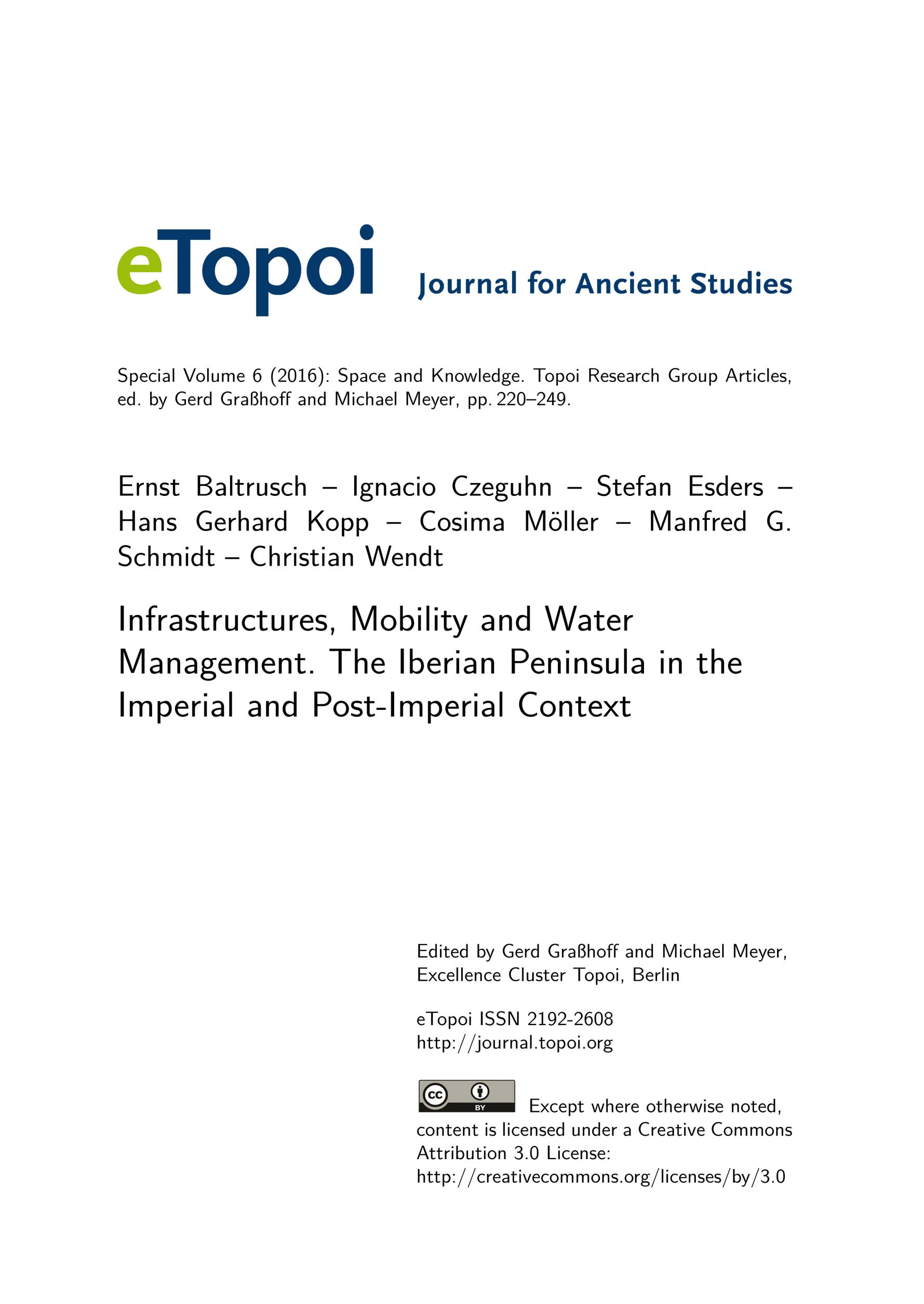Infrastructures, Mobility and Water Management. The Iberian Peninsula in the Imperial and Post-Imperial Context
This paper investigates the way in which technical and normative knowledge relating to infrastructures, mobility and water management, which the Romans began developing in the republican period, was functionalized for the purpose of expanding the empire in the Iberian Peninsula, starting with the establishment of Roman provincial rule and continuing into the Islamic epoch.It also examines how that knowledge was entrenched in the individual Iberian provinces, and adapted to reflect specific local features. In addition to shedding light on how imperial concepts manifested themselves in the appropriation of space in specific contexts, the example of the Iberian Peninsula elucidates both how the knowledge in question was adapted to meet ‘regional-political’ objectives once the imperial frame of reference fell away and how it was ultimately restructured, modified and legitimized to reflect overriding religious considerations. The paper also provides examples indicating the degree to which antique concepts lent themselves to transformation while simultaneously representing both a potential and a challenge for any subsequent rulers.
This paper investigates the way in which technical and normative knowledge relating to infrastructures, mobility and water management, which the Romans began developing in the republican period, was functionalized for the purpose of expanding the empire in the Iberian Peninsula, starting with the establishment of Roman provincial rule and continuing into the Islamic epoch. It also examines how that knowledge was entrenched in the individual Iberian provinces, and adapted to reflect specific local features. In addition to shedding light on how imperial concepts manifested themselves in the appropriation of space in specific contexts, the example of the Iberian Peninsula elucidates both how the knowledge in question was adapted to meet ‘regional-political’ objectives once the imperial frame of reference fell away and how it was ultimately restructured, modified and legitimized to reflect overriding religious considerations. The paper also provides examples indicating the degree to which antique concepts lent themselves to transformation while simultaneously representing both a potential and a challenge for any subsequent rulers.

